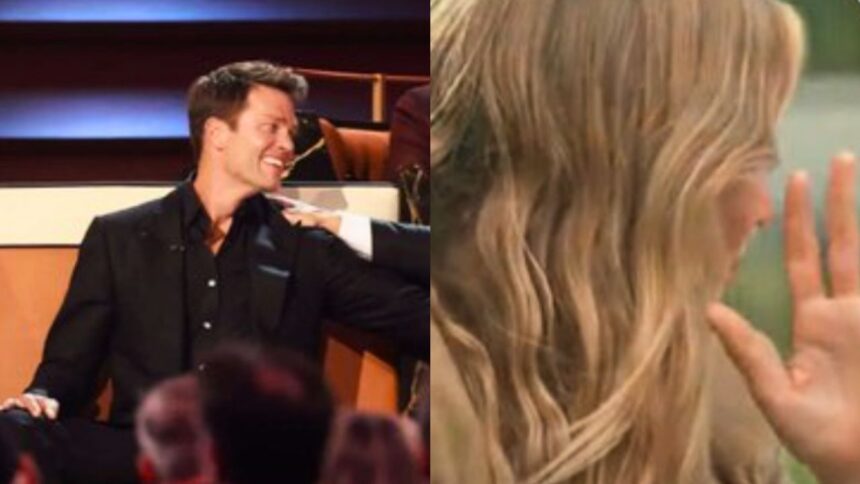“Don’t Watch Then”: Gisele Bündchen Faces Harsh Criticism After ‘Disappointing’ Reaction to Tom Brady’s Brutal Roast
Tom Brady, often revered as one of the greatest quarterbacks of all time, found himself in the center of attention once again, but this time, not for his on-field heroics. Airing on a prime Sunday night, the much-anticipated Netflix roast, aptly titled “Greatest Roast of All Time,” showcased a barrage of jokes aimed at the football legend, leaving no stone unturned, including his highly publicized divorce from supermodel Gisele Bündchen.
One would assume that in the realm of celebrity roasts, no topic is considered off-limits, and indeed, that proved to be the case. However, it was Bündchen’s reaction, or lack thereof, that sparked a wildfire of controversy. A source close to the former Victoria’s Secret angel expressed her profound disappointment, citing the disrespectful portrayal of her family as the primary catalyst for her dismay. In particular, the source emphasized Bündchen’s commitment to shielding her children from the repercussions of such “irresponsible content” broadcasted to the masses.
In the aftermath of the roast, social media platforms became a battleground of conflicting opinions. While a considerable number of fans rallied behind Bündchen, expressing solidarity and condemning the distasteful jokes made at her expense, there were voices, notably sports commentator Rich Eisen, who vehemently opposed such sentiments.
Eisen, known for his candid commentary, spared no punches in his defense of the roast, labeling it as a resounding success that exceeded all expectations. Addressing the chorus of disapproval directed at Bündchen’s perceived victimization, Eisen minced no words in his rebuttal. “Roasts are meant to be brutal,” he argued, asserting that Brady willingly subjected himself to the comedic crossfire. In his characteristic style, Eisen delivered a blunt message to those who found the content objectionable: “If that’s not your cup of tea then don’t watch.”

Yet, amidst the fervent debates and impassioned defenses, one cannot overlook the human aspect of this saga. Behind the glamorous façade of celebrity lies a woman whose life and relationships were laid bare for public consumption. Sources close to Bündchen revealed that she opted not to watch the roast live, instead choosing to focus her attention on aiding flood victims in her native Brazil. The juxtaposition of her altruistic endeavors with the crude portrayal of her personal life only served to deepen her disappointment.
The absence of Bündchen from the prestigious 2024 Met Gala further fueled speculation regarding the impact of the roast on her psyche. However, insiders were quick to dispel rumors, clarifying that her decision was motivated solely by her ongoing humanitarian efforts. Nevertheless, the palpable sense of disillusionment stemming from the roast remained unabated.
At the heart of this controversy lies a fundamental question of empathy and decency in the realm of entertainment. While roasts may thrive on shock value and controversy, they should not come at the expense of human dignity. The backlash against Bündchen’s perceived mistreatment serves as a sobering reminder of the ethical boundaries that ought to govern our collective discourse, even in the pursuit of humor.




